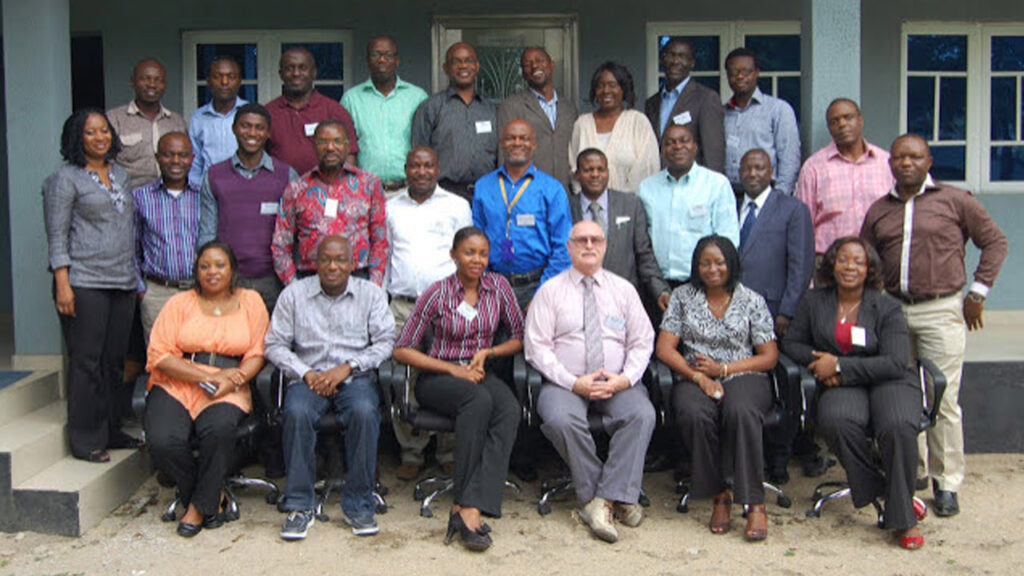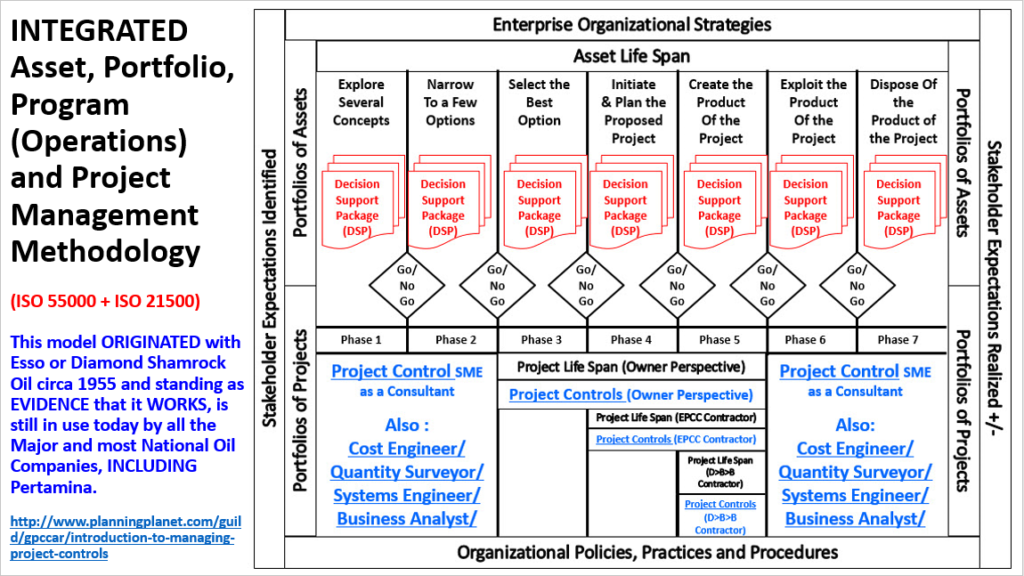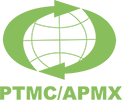Our Competency Development Program FAQ's...
Integrated Asset, Portfolio, Program, and Project Management Competency Enhancement and Assessment Course FAQ's

1. WHAT is the PRIMARY objective of our courses?
This course is designed to develop COMPETENCY in applied asset, portfolio, program, and project management tools, techniques, and methodology for practitioners generating a measurable, favorable return on training investment for both the professional practitioner and for the organization that sponsors them.
2. WHAT is the SECONDARY objective of this course?
To prepare for and pass a MINIMUM of one (or more) of the five possible AACE Certifications. And optionally, if they so desire, to adequately prepare to pass one or more of the PMI, INCOSE, or CMAA certifications. (See below for more specifics)
3. HOW does this course generate a favorable return on investment for the sponsoring organization?
Because this course has been designed to use the participant’s actual day-to-day work responsibilities as the basis for their case studies, not only is the training “just in time,” but by applying what they are learning in real-time, the sponsoring organization is realizing benefit while the participants are in the course. That is, they do not need to graduate before the sponsor can see the benefits of the training.
Furthermore, because each participant is using their own case studies from their working environment under the watchful eyes of our expert mentor/facilitators, the training is also part consulting as the mentor/facilitator provides expert guidance and advice.
4. HOW do we build competency?
The only way to build competency is by practicing using the tools and techniques associated with asset, portfolio, program, or project management under real-life conditions.
The course is based on the tested and proven concept of “Project-Based Learning” https://www.pblworks.org/what-is-pbl/gold-standard-project-design and has been designed specifically for adult learners who are working full-time. This course is also consistent with Kirkpatrick Level 3 and with follow on organizational support and analysis, Kirkpatrick Level 4. https://kirkpatrickpartners.com/the-kirkpatrick-model/
5. WHO should consider attending?
This course has been designed for those actively involved in or responsible for asset, portfolio, program, or project management.
This includes planners/schedulers, cost estimators, cost engineers, risk analysts, project controllers, business analysts, systems engineers and those preparing feasibility studies, and their first and second-level managers. (Team leaders/Project Control Managers, Project, Program, Portfolio, and Asset Managers.)
6. Is this course focused only on developing the technical skills- the tools and techniques- we need to master as a professional assets, portfolios, programs, operations, or project managers?
NO. While the course content is primarily technical in nature, the course has been designed also to help develop the SOFT SKILLS- https://www.naceweb.org/about-us/press/2017/the-key-attributes-employers-seek-on-students-resumes/
Problem-Solving
Leadership
Team Building
Mentoring
Communications (especially WRITTEN communications)
Conflict Resolution
Making things happen- getting people to do what needs to be done when you have little or no formal authority over them.
As 100% of this course (~26 weeks) will be run in “Distance Learning Mode,” participants will be working as a “Virtual Team,” and this is an opportunity to develop competencies working using collaborative software platforms, such as Google Groups, Zoom, Skype in a multi-cultural, multi-lingual environment.
7. WHAT are the minimum requirements to participate?
As this is an experiential-based program, it is NOT suitable or appropriate for people with little or no experience. The MINIMUM requirements are:
8 years of documented asset, program, portfolio, or project work experience OR
A 4-year technical degree and 4 years of asset, program, portfolio, or project management experience.
8. WHAT is the level of effort required? (See detailed curriculum for more details)
As this is a two semester-long (26 week) GRADUATE LEVEL (500 series) blended learning program (combined face-to-face and distance learning mode), it will require:
8 days (~60-70 hours) of traditional face-to-face OR virtual classroom time spread over about 180 days
5-Day Kick-Off Session (MINIMUM 8 hours X 5 days = 40 hours)
3-Day Final Review Session (MINIMUM 8 hours X 3 days = 24 hours)
Total Virtual or Face to Face Time (MINIMUM) = 64 hours
~140 – 210 hours of individual homework/team assignments during the distance learning mode. (Approximately 2-3 hours of homework for each hour of face-to-face classroom time)
This works out to be, on average, 1-2 hours of homework per day during the distance learning mode.
Consistent with any graduate-level university course, the total “Level of Effort” for any individual ranges between 210 and 280 person-hours spread over 180 days. (~60 classroom + 120 homework = 210 to ~70 classroom + 210 homework = 280 hours)
9. WHAT certifications does this course prepare the participants to sit for?
This course qualifies successful graduates to sit for ANY or ALL of the following AACE and/or PMI and/or the International Council of Systems Engineering (INCOSE) or the Construction Management (CMAA) credentials. IF the individual successfully completes this course with a grade of 80% or better, they stand a better than average chance of passing any one of or all of the following exams you qualify for.
AACE Certifications- http://web.aacei.org/certification
Certified Cost Engineering Professional (CCP)
https://web.aacei.org/certification/certification-information/certifications-offered/ccp-details
Planning and Scheduling Professional (PSP)
https://web.aacei.org/certification/certification-information/certifications-offered/psp-details
Earned Value Professional (EVP)
https://web.aacei.org/certification/certification-information/certifications-offered/evp-details
Cost Estimating Professional (CEP)
https://web.aacei.org/certification/certification-information/certifications-offered/cep-details
Decision & Risk Management Professional (DRMP)
https://web.aacei.org/certification/certification-information/certifications-offered/prmp-details
Construction Management Association- (CMAA)
https://www.cmaanet.org/certification/certified-construction-manager/becoming-ccm
Certified Construction Manager- https://www.cmaanet.org/certification/ccm
International Council of Systems Engineering- (INCOSE)
https://www.incose.org/systems-engineering-certification/the-certification-process/CertWhichOne
Project Management Institute (PMI) ANY or ALL of the following PMI Certifications- https://www.pmi.org/certifications
10. What is the certification pass rate for this course?
PTMC maintains an 18-year running first-attempt pass rate for the successful graduates of our courses.
PMI Certifications-
88% first attempt pass rate for English as Second Language (ESL) sitting for the PMP
99% first-attempt pass rate for native/near-native speakers of English
AACE Certifications-
11. Can APMX guarantee I will pass any of the above certifications?
NO, there is no way PTMC can or will guarantee you will be able to pass any of them. That depends solely on your commitment, dedication, and perseverance to finish the course and complete all your work assignments with a grade of B (80%) or better.
12. What does PTMC guarantee?
What we do guarantee is that you have been provided with sufficient materials to adequately prepare for any or all of the PMI, AACE, CMAA, or INCOSE certifications and that if you invest an honest one to two hours per day on average of dedicated, graduate-level study, that you stand a better than average probability of passing at least one if not more than one of the certification exams.
We also guarantee that you will get the individual attention of Dr. Paul or one of our other qualified professors and that IF you are unable to finish the course for ANY reason, APMX will hold open a seat in another course for a period of 12 months from the time you dropped out, at no additional cost for the training. If you opt to attend the second face-to-face session, there will be a nominal charge to cover your lunch and coffee breaks.
13. WHAT topics are covered in this course?
The course covers all the topics contained in AACE’s 11R-88 Skills and Knowledge of Cost Engineers http://web.aacei.org/docs/default-source/toc/toc_11r-88.pdf with a focus on the INTEGRATION of these roles and responsibilities across and within the organization. (AACE’s 11R-88 was used as the content checklist for our 1500+ page book of “”Best Tested and PROVEN” Practices) https://build-project-management-competency.com/1-4-1-1-unit-1/

14. HOW MUCH does this course cost?
The specific cost will depend on the number of participants and the location where the training will be held. However, this course compares very favorably for similar graduate-level capstone or master certificate courses at top-ranked universities (e.g., The George Washington University Online Masters Degree in Project Management (which forms the basis for this course) is the equivalent of 6 credit hours of graduate-level work. The cost of a credit hour for the GWU Distance Learning program is $2,080 https://studentaccounts.gwu.edu/non-degree-tuition-rates for budgeting purposes only, if you allow 6 credit hours X $2,080 = $12,480 per person, understanding that this is a P98% number and that the actual cost will vary, depending on location, number of participants and whether it is conducted in your facility or at a hotel or outside the venue. Purely online will be considerably less.
15. This seems EXPENSIVE.
IF you remember that this course is very customized and is half training/half consulting, with each student receiving the personal attention of the Facilitator/Mentor, by breaking it down on an hourly basis per person, it will make much more sense. $12,480 / average 250 hours = $49.92 per hour of facilitated and mentored training per individual participant. IF you are making comparisons, please do it based on the cost per hour per person of training received. And also, keep in mind that the $12,480 is a P98 value, meaning the quote for your location is most likely to be lower.
16. I am paying for this course out of my pocket. Is there anything PTMC will do to help me generate a return on my training investment?
IF you are paying for this course out of your pocket AND your company is not reimbursing you, PTMC considers you our client and will provide all reasonable efforts to facilitate you in finding work after successfully completing the course and getting certified.
However, under no circumstances can we guaranty you a job after completing the course, whether you get certified or not.
17. My company is paying for me to take this training OR is reimbursing me for having taken this training after successfully completing the course. If I am unhappy with my company, will PTMC help me find a new job?
IF your company is paying for your training OR is reimbursing you for your expenses in taking this course, then our client is the organization providing the funding, and under those circumstances, we CANNOT and WILL not help you leave the organization which paid for your training. IF you quit that company, complete your contract, or are terminated, AFTER you are done working for them, and are unemployed, THEN we will do whatever we can to help you find work. But under no circumstances can we or will we help people find work while they are still employed by any company which has paid for their training. Why not? Because our core philosophy is we want the sponsoring organization to be able to realize a favorable return on their training investment in you and to help you leave a company after they have paid for your training would be highly unethical, if not illegal
Get a free business consultation
Let us show you how your company can benefit from having high-quality, high value service with us.

